Kate Larsson
Students & Alumni. Education.
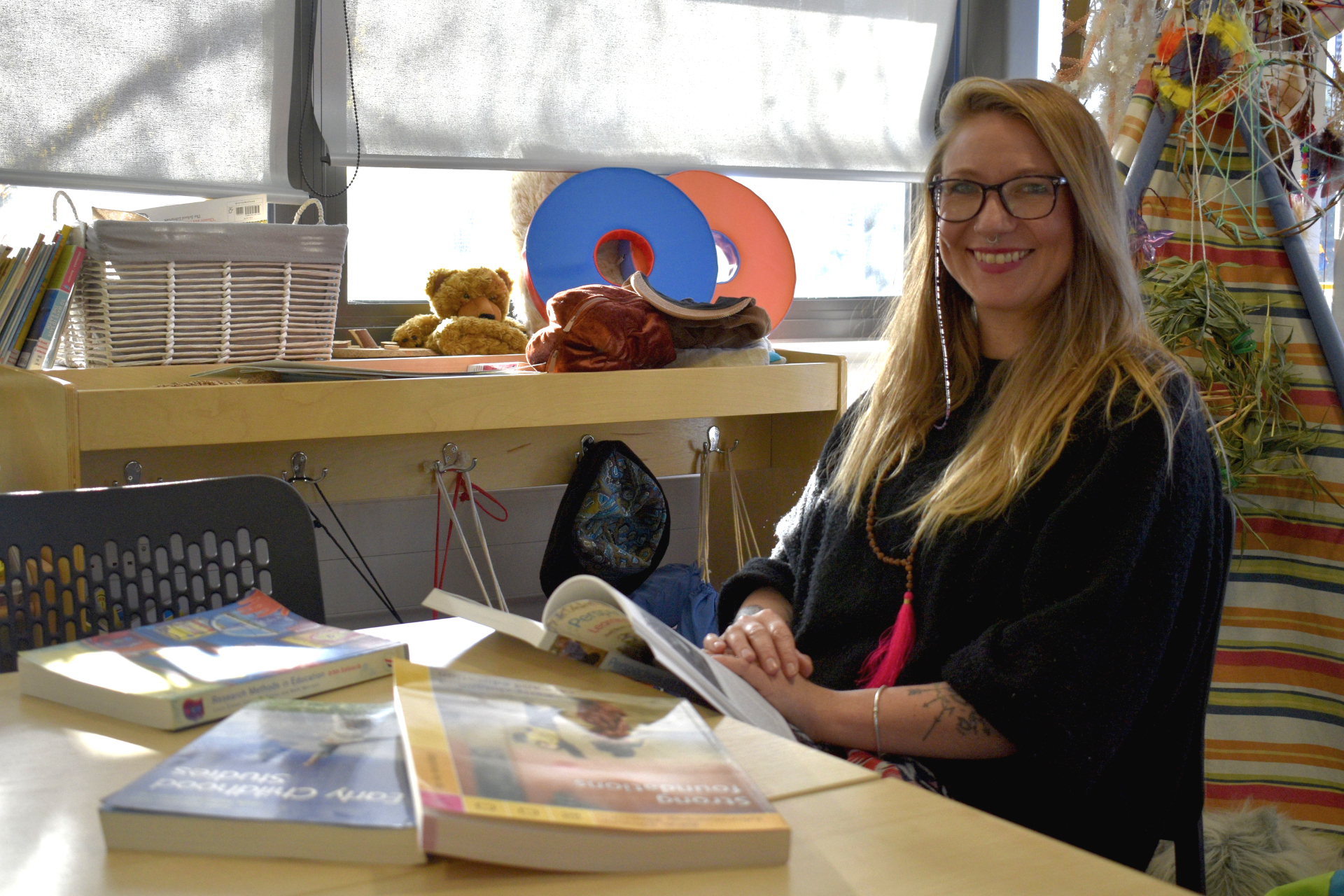
Kate Larsson graduated from our BA (Hons) Montessori Early Childhood Studies in 2023 as a mature student, and has since been requested to facilitate a workshop at the Montessori Europe Congress in Gdansk as well as recently taking on a new role as the Manager of a thriving Montessori Nursery & Pre-school in Cambridgeshire.
What have you been doing since graduating from ARU?
It's been a bit of a mad busy year for me. As well as completing my BA at this (somewhat late) stage in my life, I also got married and moved out of London into the countryside and took on a huge new professional role. Starting a whole new chapter for me and my family, I'm now managing a beautiful nursery and preschool out on a farm in the middle of leafy Cambridgeshire. So, it's been a massive year of change, and a lot of that was based around my experience at ARU and this journey into academia, pushing me forwards career-wise.
Where and what did you study before ARU?
In 2016 I enrolled at Montessori Centre International and underwent my Montessori Early Years Educator Level 4 Diploma, which consisted of a year attending college, then a year’s teaching practice within a Montessori setting. Before that, longer than I care to remember, I trained at Professional Dance & Theatre College gaining my first Diploma in Dance and Musical Theatre back when I was 19.

What made you decide to change career?
I think life just sort of guided me on a path. There wasn’t just one day when I decided I was going to swap my tap shoes for a text book, it all happened quite organically. I performed for years, working on cruise ships and in theatre. And when you do those kinds of jobs, it does become slightly inevitable that at some point you are going to end up teaching in some capacity to supplement your income in between theatre jobs. So, I taught dance and drama to adults and children for quite a while. Then I started doing drama and storytelling workshops and sessions with very young children and found that I really liked it.
Around that time, I became pregnant with my daughter, and decided I should probably consider having a “proper job”. Taking stock then and looking at my life and at what I was enjoying doing, I decided I would like to become a teacher. So I started looking into primary education and the more I saw, and the more I spoke to friends of mine that had gone down that route, the less it made sense to me, the way the schools were operating. It just didn't sit well with me. Then a friend of mine who had been in Italy and done a yoga course, said ‘Have you heard of Montessori? I think this would really suit your personal ethos and ideas on education, and how children should be respected and looked after.’
So after my daughter was born, I started researching, reading up on Montessori, then looking for training courses, which is when I found Montessori Centre International, and I haven’t looked back really. I loved my initial training. The building was full of ridiculously inspirational women who really, really cared about what they did, and trained us to do. After I graduated, I went back a couple of years later to do my trainer’s course so I could train Montessori teachers, and I just wanted to keep going.
Is there any one thing that inspired you to do what you do now?
One hundred percent becoming a mother, and having this tiny, incredible human life brought into the world. I hadn’t really thought about it before, little children and how they learn, but having this little child and just being absolutely fascinated by her and how incredible children just are. Every day, it’s something new. I just wanted to learn as much as I could to support my daughter. Then obviously it then spread out to not just her, what about all the others?
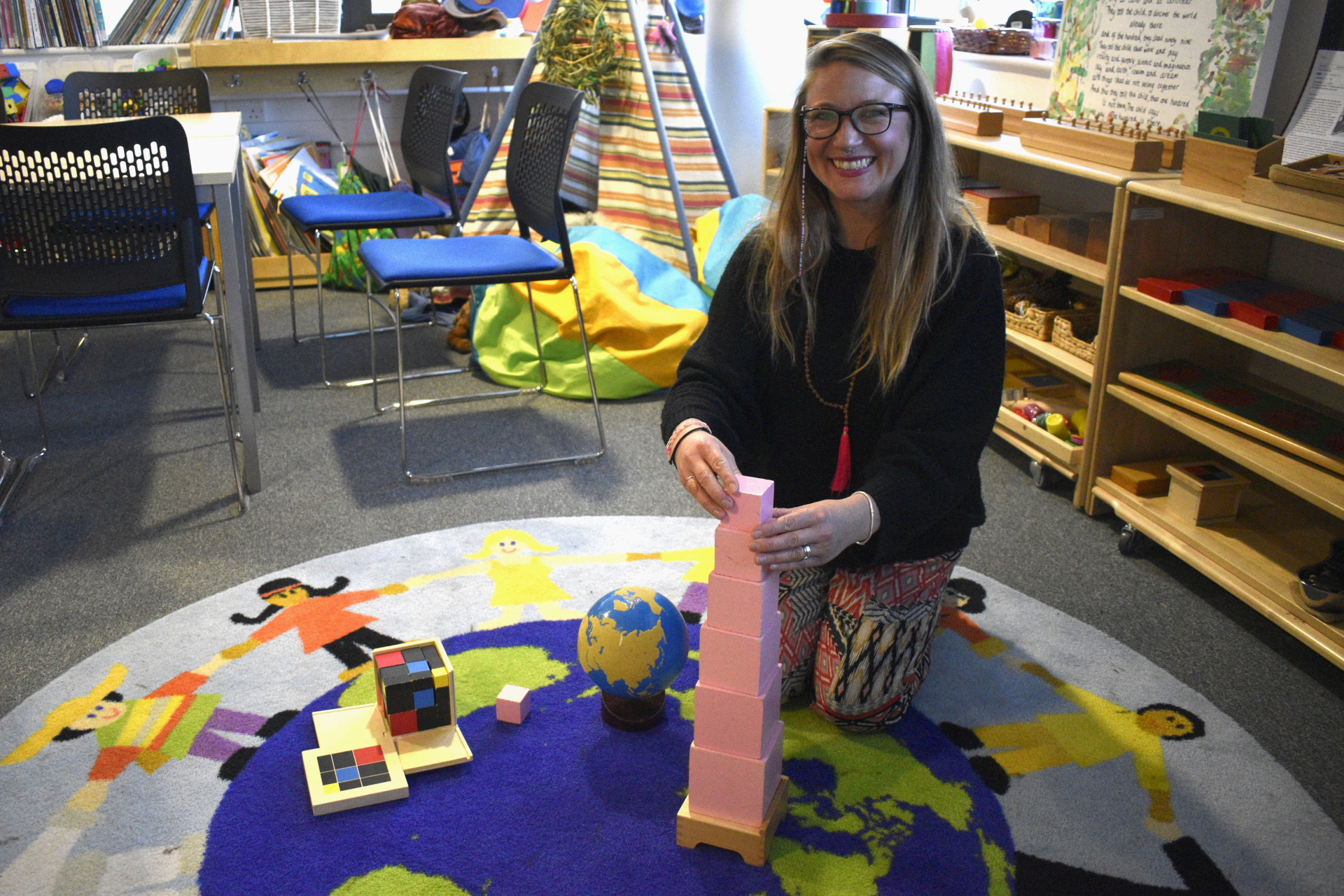
What are the main differences between a Montessori school and others?
The ethos is based around the work and the pedagogy of Dr Maria Montessori who was working around 150 years ago. She was a doctor, a scientist, and she became interested in children and specifically in how very young children learn. She coined this term ‘the absorbent mind’, which basically says that children between the ages of zero and six cannot benefit from traditional teaching methods. Instead, these children absorb from their environment. They learn through interaction with their environment, with support from appropriate adults and also from their peers. Really, her motto was to “follow the child”.
Probably the first thing you notice in a Montessori setting is that everything is available to the children at their height. There's no asking ‘Can I play with this? Can I get that?’ Everything is there for the children to independently select and is developmentally appropriate for the children. I think when you want to do something, you apply yourself more. We’re fostering their independence, their inquisitiveness, and a lifelong love of learning by providing an environment in which they can flourish and truly be individual learners. It's the job of the teacher to be a sensitive co-learner; to be there with the children and join them in the shared thinking of ‘let's discover together’. It's watching, and knowing when they're ready for the next challenge, or that they need time to wallow and to repeat, to use these materials until they satisfy their own schemas or needs.
So it’s a really intuitive and beautiful method of teaching, because really we’re just sowing the seeds. We're beginning that idea of the spiral curriculum, just doing things here and there for them to come back to when they wish to come back to it.
What’s the most valuable thing you took away from your own education?
That it's never too late to surprise yourself. I hadn't done any sort of formal higher education, and even when I went to do the diploma it was very vocational. I had always been quite academic at school, but then I just left it behind and had this career dancing and singing. I really surprised myself. I look back on some of the assignments and think ‘I can’t believe I wrote that’.
Back in the day, I remember my parents being really disappointed that I was Oxbridge material, but I chose to go and kick my legs at dance college instead. And just coming back to that, twenty or so years later, I’m actually loving this, just getting new skills. It’s like, what next?
It's also the fact you’re setting an example to other people as well. It is possible to be a parent and work full-time and do your degree, and it was nice to have the discipline myself in that way.
Which aspects of the course most helped your career development, and why?
There was a whole section over the last year of the course which covered Montessori Leadership and Management and this idea of using the Montessori philosophy as a framework for leadership massively inspired me. It gave me the confidence to believe that, by using such a framework, I could be ready to step up into a leadership role.
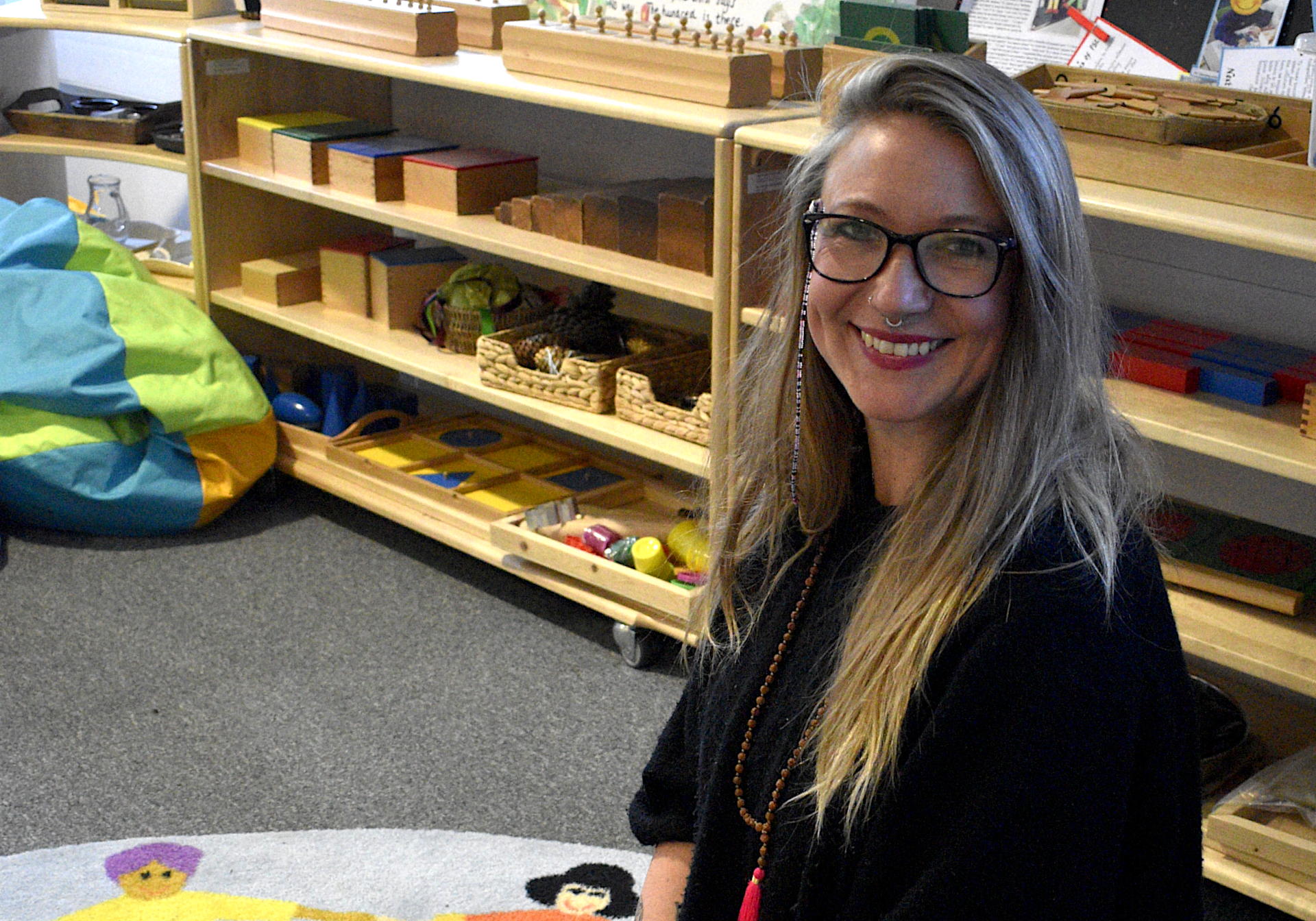
What piece of advice would you give to your younger self?
Honestly, just trust that it will all come back. This idea that you need to choose one path at 16 and have got to get the right one, or at 14, choosing your GCSE subjects. What if you choose the wrong path? What if you don't do history and then you're never going to be able to be a historian? I’d just say go with your gut but never be frightened to change. Don't feel you have to stick on a certain path. Don't think that your life's already written because of a decision you've made now.
At 18, by the time I was my age, I thought I'd be in the West End on the stage. And I'm not that person anymore. I’m glad that I've been able to trust the journey, trust where life has taken me, and every single thing I’ve ever done that makes me better at my job today. The fact I can sing and dance, and stand up in front of people with confidence, helps me every single day. The fact that I've travelled the world helps me every single day. The fact that I've failed at certain things helps me every single day. So just don’t stress about it all too much.
What were the benefits for you of studying on a distance learning course?
What amazed me was the fact we were able to do a full degree and not need to go into university. The fact that the online platform was so capable, that you could have a dialogue with your professors and with the other learners. It’s quite amazing.
What projects are you currently working on, both at work and outside it?
So at work I’m just really getting my head around the newness, but from January I will be starting to deliver some of the Montessori level 3 and 4 diploma. So alongside managing the nursery, I’ll also be facilitating some adult learning.
I just got back from the Montessori Europe Annual Congress in Gdansk, where we ran a workshop on embedding the importance of sustainability in the minds and the hearts of very young children.
I would like to do something more with my dissertation. Michelle Wisbey (Course Leader, BA Early Childhood Studies) has put me forward for an early education competition, to get some student work published in an academic journal, so I’m currently trying to get my dissertation down to an appropriate length to put forward.
I would also like to develop a little workshop around my dissertation, ‘How are Montessori settings including and representing LGBTQ + families?’ The primary research I did showed there's zero consistency. It’s a very untouched subject within all early years, and specifically within Montessori, so I would like to develop that into something that could be added to the initial Montessori teacher training, so people are prepared.
And I'm probably going to sign up to do my Master’s next year, then who knows, maybe even come back for a PhD.
Where now
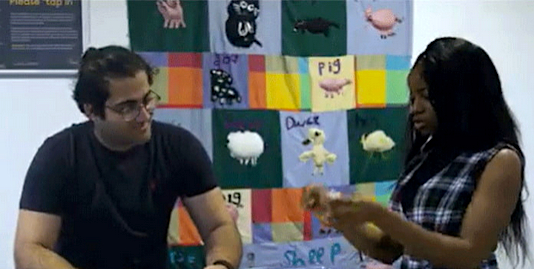
ARU website
BA (Hons) Montessori Early Childhood Studies
Study one of the only specific Montessori Early Childhood Studies degrees to become a Montessori teacher, in Chelmsford or by distance learning, including a Montessori placement.
Find out more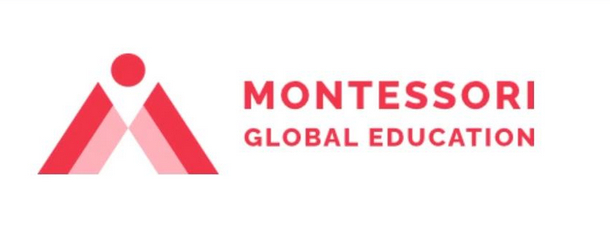
External website
Montessori Global Education
A global education organization expanding access to Montessori to transform how we teach, learn and lead. We identify, support and spread Montessori-inspired educational solutions that will give a generation of children the skills to solve tomorrow’s problems.
Visit website
Our People
Mitzi Harris
Mitzi Harris graduated with a First from our BA (Hons) Early Childhood Studies in 2023 and has just started working as Admissions and Conversion Co-ordinator at ARU. She is also a freelance writer and self-published children’s author.
Meet Mitzi